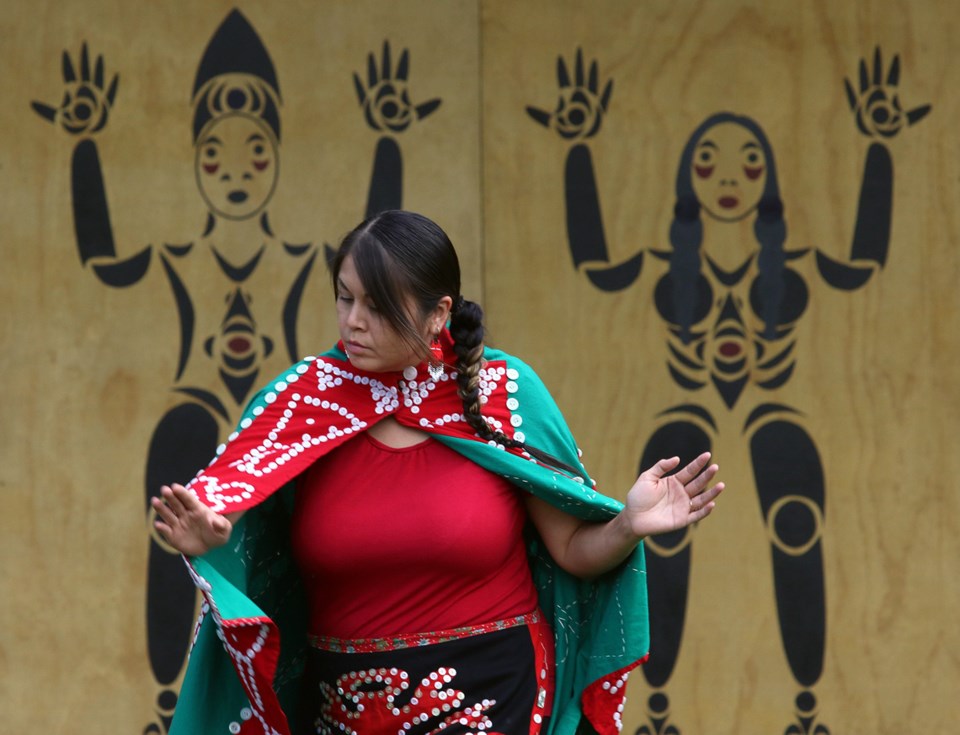Port Moody needs to take action on reconciliation if it’s to do right by the local Indigenous population say two city councillors.
A report by Zoe Royer and Amy Lubik recommends the city create a task force comprised of local First Nations people as well as members of Indigenous, First Nations and Métis communities at large to review various initiatives to address reconciliation in a Port Moody context, as well as provide further ideas and feedback.
The report, which was authored after informal consultation with Ed Hall, chief of the Kwikwetlem First Nation, will be considered by council at its meeting of its committee of the whole on Feb. 16. The issue was scheduled to be debated at last Tuesday’s regular council meeting but it was postponed when proceedings were adjourned at 10 p.m.
Royer and Lubik also want staff to organize a blanket exercise — or interactive educational program — for councillors and senior staff to get a better understanding of Indigenous history and the First Nations experience. The exercise would recur for subsequent incoming councils.
In their report, Royer and Lubik noted while the city is actively working with local First Nations like the Tsleil-Waututh and Kwikwetlem, “there is still much more that is needed to be done to address the ongoing damages of colonialism.”
Some of their recommendations to achieve that include:
- adopt the United Nations Declaration on the Rights of Indigenous Peoples as the framework for reconciliation
- incorporate that declaration into Port Moody’s official community plan
- develop a protocol for First Nations’ input on proposed developments or operations that could impact their lands, resources and/or culture, as well as areas of high archeological potential.
- invite input from Tsleil-Waututh and Kwikwetlem First Nations on translations for street and park names and explore opportunities for a bilingual naming program
- include Indigenous housing needs in the development of an affordable housing needs assessment
- direct staff to incorporate Indigenous businesses in the city’s procurement contracts
- provide cultural sensitivity and humility training, as well as anti-bias training to all new councils and staff as well as to Port Moody police
Royer and Lubik said the blanket exercise, that invites participants to explore a series of connected blankets laid out on the floor while a narrator explains the history of Indigenous people, would be a key first step in bridging the cultural divide with the community’s Indigenous population.
“This is a popular exercise for local government and other government employees who deal with systems that may perpetuate systemic oppression,” they said, adding it puts participants in the shoes of Indigenous peoples from the time before Europeans arrived in North American to the present day.
Royer told the Tri-City News the idea to formulate a plan for reconciliation began as several councillors discussed ways to formally acknowledge Port Moody’s presence on traditional territorial lands.
And while their report includes a call to implement such an acknowledgement, Royer said it has to be more than just a collection of words. She said it needs to explore “how we as a city can be more inclusive, how we as a city meaningfully engage and collaborate with local First Nations in our civic processes.”
Recently, Delta council passed a motion to make similar acknowledgements, while Surrey and Richmond rejected formal recognitions.
Last December, three commissioners who were part of the federal Truth and Reconciliation Commission expressed concern about the pace of reconciliation efforts in the five years since it released a report that recommended 94 calls to action for various levels of government to address and repair the harm caused by residential schools.
Royer said local municipalities have an opportunity to become leaders in reconciliation efforts.
“It is important to meet people where they are,” she said. “Members of our local Indigenous communities are people of this land. It is my hope that together we can begin a journey of close collaboration, friendship, cultural significance and celebration.”

